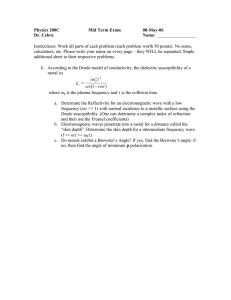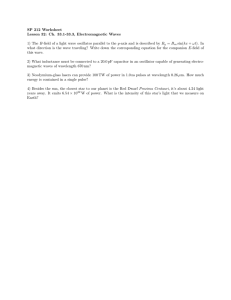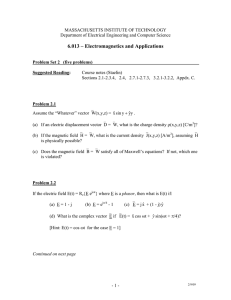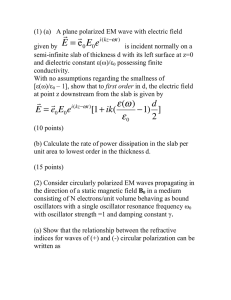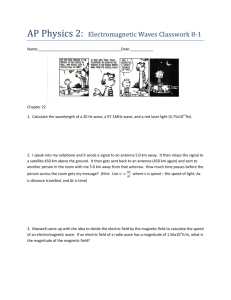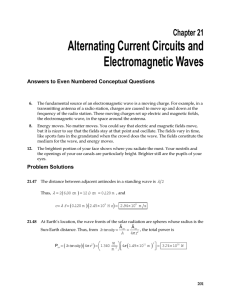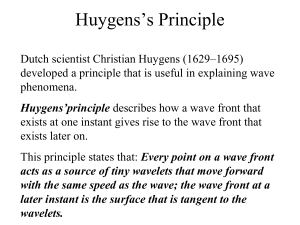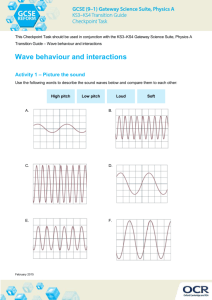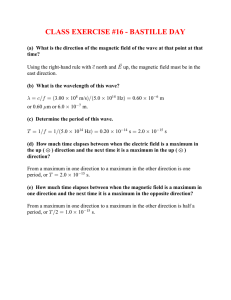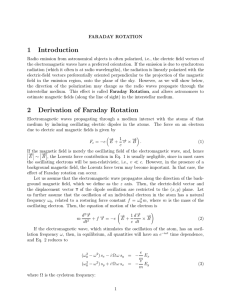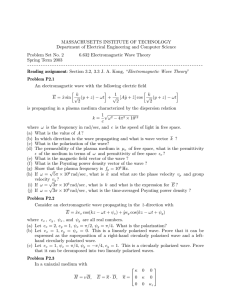MASSACHUSETTS INSTITUTE OF TECHNOLOGY Department of Electrical Engineering and Computer Science
advertisement
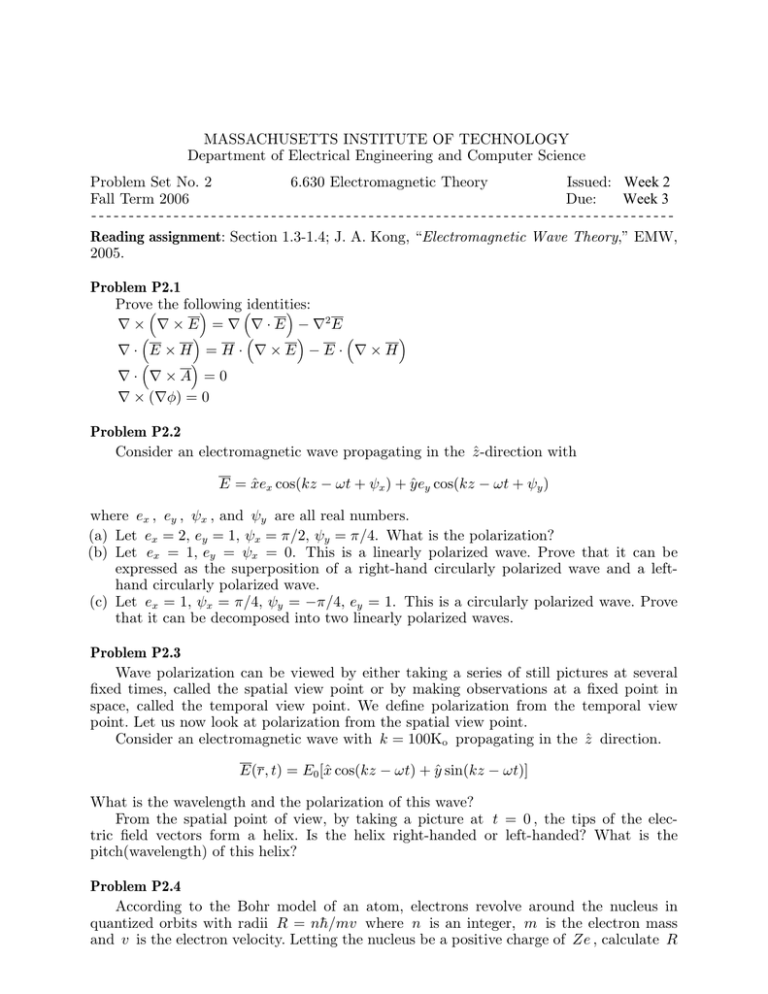
MASSACHUSETTS INSTITUTE OF TECHNOLOGY Department of Electrical Engineering and Computer Science Problem Set No. 2 6.630 Electromagnetic Theory Issued: Week 2 Fall Term 2006 Due: Week 3 -----------------------------------------------------------------------------Reading assignment: Section 1.3-1.4; J. A. Kong, “Electromagnetic Wave Theory,” EMW, 2005. Problem P2.1 Prove! the following " !identities: " ∇ × ∇ × E = ∇ ∇ · E − ∇2 E ! " ! " ! ∇· E×H =H · ∇×E −E· ∇×H ! " ∇· ∇×A =0 ∇ × (∇φ) = 0 " Problem P2.2 Consider an electromagnetic wave propagating in the ẑ-direction with E = x̂ex cos(kz − ωt + ψx ) + ŷey cos(kz − ωt + ψy ) where ex , ey , ψx , and ψy are all real numbers. (a) Let ex = 2, ey = 1, ψx = π/2, ψy = π/4. What is the polarization? (b) Let ex = 1, ey = ψx = 0. This is a linearly polarized wave. Prove that it can be expressed as the superposition of a right-hand circularly polarized wave and a lefthand circularly polarized wave. (c) Let ex = 1, ψx = π/4, ψy = −π/4, ey = 1. This is a circularly polarized wave. Prove that it can be decomposed into two linearly polarized waves. Problem P2.3 Wave polarization can be viewed by either taking a series of still pictures at several fixed times, called the spatial view point or by making observations at a fixed point in space, called the temporal view point. We define polarization from the temporal view point. Let us now look at polarization from the spatial view point. Consider an electromagnetic wave with k = 100Ko propagating in the ẑ direction. E(r, t) = E0 [x̂ cos(kz − ωt) + ŷ sin(kz − ωt)] What is the wavelength and the polarization of this wave? From the spatial point of view, by taking a picture at t = 0 , the tips of the electric field vectors form a helix. Is the helix right-handed or left-handed? What is the pitch(wavelength) of this helix? Problem P2.4 According to the Bohr model of an atom, electrons revolve around the nucleus in quantized orbits with radii R = nh̄/mv where n is an integer, m is the electron mass and v is the electron velocity. Letting the nucleus be a positive charge of Ze , calculate R by equating the centrifugal force with the Lorentz force. Estimate the radius for a hydrogen atom with Z = 1 . Problem P2.5 The magnetic moment M is analogous to the expression for the mechanical angular momentum. In general, the magnetic torque is given by T = M × B . Shown in the figure below, a current loop is placed in a uniform magnetic field. Show that T = ẑIAB0 x̂ ẑ B = x̂B0 ŷ x̂ lz lb
